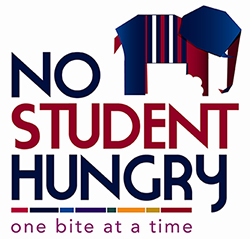Latest News Archive
Please select Category, Year, and then Month to display items
05 June 2018
Photo Supplied
 Archaeological excavations in the Wonderwerk Cave, north of Kuruman in the Northern Cape.
Archaeological excavations in the Wonderwerk Cave, north of Kuruman in the Northern Cape.
Research fellow Dr Lloyd Rossouw from the Department of Plant Sciences at the University of the Free State (UFS) recently published an article in the Nature Ecology and Evolution journal with Dr Michaela Ecker from the University of Toronto as lead author, and Dr James Brink, research fellow at the UFS Centre for Environmental Management. The findings described in “The palaeoecological context of the Oldowan-Acheulean in southern Africa” provides the first extensive paleoenvironmental sequence for the interior of southern Africa by applying a combination of methods for environmental reconstruction at Wonderwerk Cave, which have yielded multiple evidence of early human occupation dating back almost two million years ago.
Where water once was
The Wonderwerk Cave is found north of the Kuruman hills (situated in Northern Cape) a 140m long tube with a low ceiling. The surroundings are harsh. Semi-arid conditions allow for the survival of only hardy bushes, trees, and grasses. But during the Early Pleistocene, stepping out of the Wonderwerk Cave you would have been greeted by a completely different site, the researchers found. Using carbon and oxygen stable isotope analysis on the teeth of herbivores (Dr Ecker), fossil faunal abundance (Dr Brink), as well as the analysis of microscopic plant silica remains (phytoliths) excavated from fossil soils inside the cave (Dr Rossouw), the results show that ancient environments in the central interior of southern Africa were significantly wetter and housed a plant community unlike any other in the modern African savanna.
What difference does it make?
While East African research shows increasing aridity and the spread of summer-rainfall grasslands more than a million years ago, the results from this study indicate an interesting twist. During the same period, shifts in rainfall seasonality allowed for alternating summer and winter-rainfall grass occurrences coupled with prolonged wetlands, that remained major components of Early Pleistocene (more or less the period between one and two million years ago) environments in the central interior of southern Africa. That means our human ancestors were also living and evolving in environments other than the generally accepted open, arid grassland model.
Local businesses challenged to join hands with NSH in raising funds for Mandela Day
2015-07-07
 To celebrate Mandela Day, the No Student Hungry Bursary Programme (NSH) will host the first-of-its-kind “Extreme Challenge” in partnership with the Vrystaat Kunstefees/Arts Festival on the Bloemfontein Campus. The competition will have businesses in Bloemfontein enter their staff teams to compete against other businesses, to help raise funds, and to celebrate the tradition of Mandela Day.
To celebrate Mandela Day, the No Student Hungry Bursary Programme (NSH) will host the first-of-its-kind “Extreme Challenge” in partnership with the Vrystaat Kunstefees/Arts Festival on the Bloemfontein Campus. The competition will have businesses in Bloemfontein enter their staff teams to compete against other businesses, to help raise funds, and to celebrate the tradition of Mandela Day.
Date: 17 July 2015
Time: 11:00 - 16:30
Venue: Grass area at the back of the George du Toit building, Bloemfontein Campus
The NSH Extreme Challenge aims to raise awareness on food insecurity on all three of the UFS campuses. It will provide exposure for the bursary programme, and will get local businesses involved as potential long-term partners.
“The NSH Bursary Programme invests in potential, and supports academic achievers who come from challenging backgrounds,” says Vicky Simpson, co-ordinator of NSH. The NSH food bursary is awarded to students on the basis of financial need, academic excellence, and the commitment to serve the community, and has assisted more than 500 students since 2011.
The public and members of the UFS community are invited to come and support the teams and to bring non-perishable food items on the day to the George du Toit Building during the event, from 11:00 to 16:30. These donations will go towards assisting students on the NSH Bursary programme.